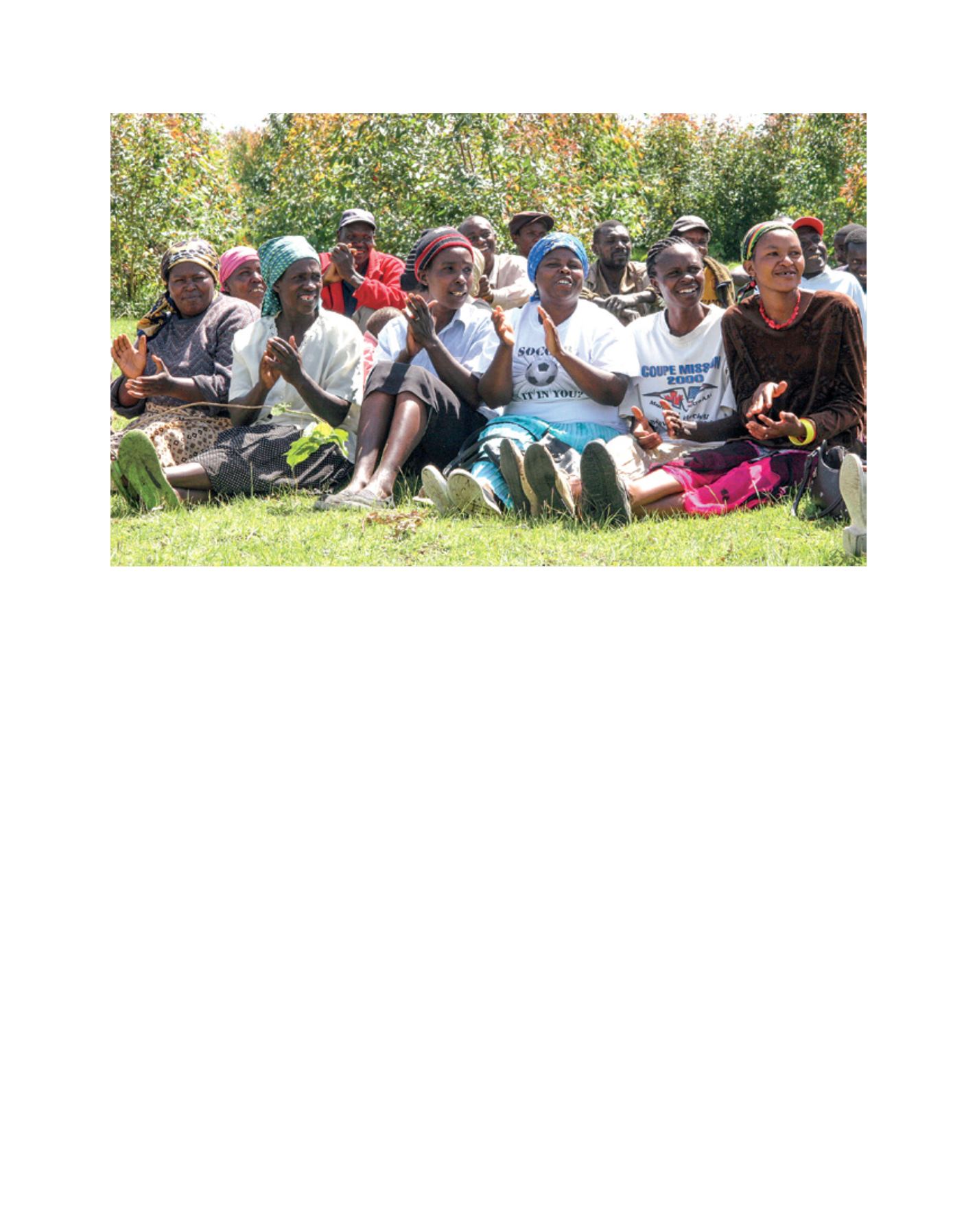

mentioned indigenous family farmers in the Polochic Valley,
Guatemala, is a good example in this respect.
In March 2011, the Government of President Álvaro Colom
violently evicted fourteen Q’eqchi communities (769 families)
in the Polochic Valley, Guatemala, in order to make way for
sugar plantations. One year later, following a huge demonstra-
tion organized by the Guatemala Farmers’ Unity Committee in
which over 10,000 people marched 212 kilometres to Guatemala
City, the newly elected president Otto Pérez Molina promised
to return the land to the communities and to guarantee their
security, access to food, health care and housing. However, no
immediate action was taken.
ILC member Oxfam connected its global GROW campaign
to the cause of the Polochic in Guatemala. Through the
campaign, Oxfam obtained more than 107,000 signatures
from 55 countries in support of the Polochic. In 2013, the
ILC Global Land Forum brought President Molina face to face
with peasant leaders on this issue and the ILC Members, who
expressed their concern about lack of tenure security of family
farmers and indigenous communities in Guatemala, explicitly
called on the Guatemalan Government to revoke the evictions
of the Q’eqchi communities in the Polochic Valley.
The Government started considering the farmer organi-
zations as legitimate interlocutors and the cause of the
Q’eqchi could be discussed openly. These factors may have
contributed to the President of Guatemala, in October 2013,
publicly handing over land titles to 140 of 769 families and
promising to resolve the situation of the remaining families
in the course of 2014.
One well-known initiative of ILC is the Land Matrix,
4
a global
partnership aimed to monitor large-scale land acquisitions. The
Land Matrix has evolved from a data collection effort into an
independent, decentralized partnership to promote transpar-
ency and accountability in land governance.
Initially a small ILC blogging initiative about large-scale land
deals, the Land Matrix soon became a global reference for data
on large-scale land deals. The Land Matrix project has collected
verified data of large-scale transnational land deals that cover
over 37 million hectares,
5
equivalent to over four times the size
of Portugal. The tentative data suggests that much of this land
was under family farming prior to its conversion.
The Land Matrix has also evolved from a data collection
effort into an independent, decentralized partnership. Its
goal is to facilitate an open development community of citi-
zens, researchers, policymakers and technology specialists to
promote transparency and accountability in decisions over
land and investment. The Land Matrix partnership contin-
ues gathering data on large-scale land deals through an open
online tool, the Observatory, which allows wide participation
in constantly upgrading, correcting and improving the data.
Supporting land users to claim their rights
ILC is a coalition of member organizations. While all members
share a common vision and commitments, they also have
strong individual identities. This diversity in the coalition is
a unique asset, and the combined work of ILC as a coalition
with the work of single members tends to be very powerful in
both political and operational terms. The case of the earlier
Civil society organizations helped formulate Uganda’s National Land Policy, which supports the land rights of women, pastoralists,
family farmers and minorities on customary land
Image: ILC Secretariat
D
eep
R
oots
[
] 180
















